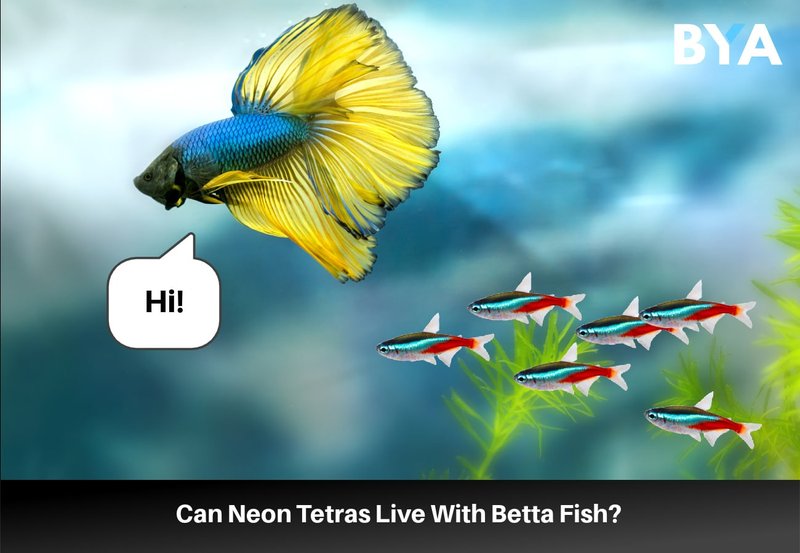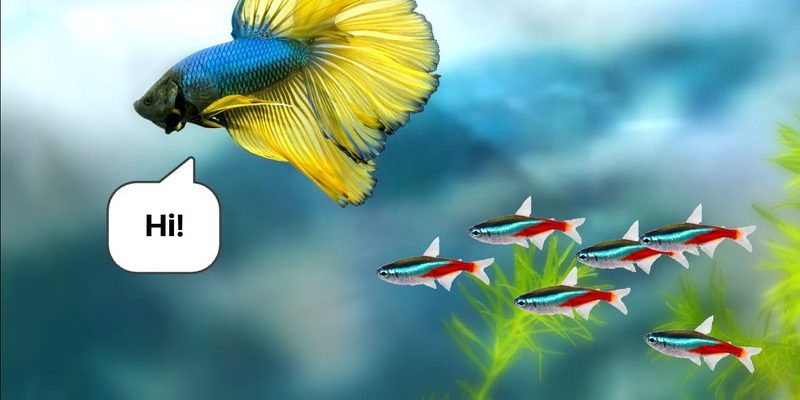
Tetras are often favored by beginner and experienced aquarists alike due to their lively colors and playful nature. These little swimmers are typically peaceful, but that doesn’t guarantee they’ll play nice with everyone in the tank. In this guide, we’ll dive into the world of tetra fish compatibility, exploring what types of fish make great tankmates and which ones you should avoid. Grab a cup of coffee, and let’s explore together!
Understanding Tetra Species
Before we get into compatibility, it’s crucial to know that not all tetras are the same. There are over 150 species of tetras, and each comes with its unique behavior and requirements. For instance, Neon Tetras are small, vibrant, and thrive in schools of six or more, while Cardinal Tetras are known for their striking blue and red coloration.
Here’s a quick breakdown of some common types:
- Neon Tetra: Bright blue and red, peaceful, best in groups.
- Cardinal Tetra: Slightly larger, very colorful, prefers similar tankmates.
- Rummy Nose Tetra: Known for its distinctive red nose, thrives in schools.
- Black Neon Tetra: Darker coloration, also enjoys company.
Understanding these differences is key. Each type may have specific preferences for tankmates based on their temperament and size. So if you skip this step, you might find yourself in a bit of a pickle later on.
Peaceful Fish that Play Nice with Tetras
Honestly, when selecting fish to live with tetras, look for peaceful species that prefer similar water conditions. Tetras generally thrive in slightly acidic to neutral pH levels and enjoy a well-planted tank. Here are some fish that are typically great companions for tetras:
- Guppies: Colorful, small, and peaceful. They create a lively atmosphere, just like tetras.
- Platies: Another peaceful option, platies are available in various colors and are easy to care for.
- Corydoras Catfish: Bottom dwellers that help keep the tank clean and are generally peaceful.
- Otocinclus: Great algae eaters, they stay small and won’t bother tetras.
These fish share similar water requirements and behavior patterns, making them ideal candidates for a community tank. Just picture them as friendly neighbors enjoying a sunny day in the park together.
Fish to Avoid with Tetras
On the flip side, there are fish that you definitely want to avoid putting in a tank with tetras. Generally, larger or more aggressive fish can intimidate or harm these small, delicate creatures. Here’s a quick list of fish to steer clear of:
- Cichlids: Most cichlids are territorial and can be aggressive toward your tetras.
- Betta Fish: Male bettas, in particular, can be aggressive and territorial, seeing tetras as threats.
- Goldfish: They require different water temperatures and can outgrow a tetra-friendly tank.
- Barbs: Especially Tiger Barbs, can nip at the fins of smaller fish, including tetras.
It’s crucial to consider the size and temperament of potential tankmates. Picture tetras as the friendly, social types who prefer to avoid conflict at all costs. You wouldn’t want to throw a bully into the mix, right?
Creating the Right Environment for Tetras and Their Tankmates
Setting up a peaceful environment is essential for tetras and their companions. Here are some tips on how to create a harmonious community tank:
1. Tank Size Matters: A larger tank (20 gallons or more) allows more swimming space and reduces territorial behavior among fish.
2. Plant It Up: Adding live plants not only makes the tank look beautiful but also provides hiding spots for timid fish. Tetras love to dart in and out of greenery, which gives them a sense of security.
3. Maintain Proper Water Conditions: Keep the water temperature between 72°F and 78°F, and maintain a pH around 6.0 to 7.0. Regular water changes help reduce stress and prevent disease.
4. Schooling is Key: Tetras naturally feel safer in groups. Keeping them in schools of six or more will reduce stress and promote their natural behavior.
By creating a balanced environment, you enhance the chances of a peaceful coexistence.
Behavioral Considerations When Mixing Fish
You might be wondering how the individual personalities of fish can affect compatibility. Every fish has its quirks, just like people! Some might be more skittish, while others are bold and adventurous.
Pay attention to the following:
– Social Dynamics: Fish like tetras, which are naturally schooling creatures, may become stressed if they’re alone. Having enough of their kind can keep them happy and help them mingle more easily with other species.
– Territorial Behaviors: Some fish establish territories within the tank. Knowing which fish are likely to claim their space can help you avoid conflicts.
– Feeding Habits: Ensure all fish get their share of food. If some fish are quicker to snatch food, others may feel left out or even starve.
By understanding each fish’s personality, you can better predict how well they’ll get along.
Monitoring Compatibility Over Time
After you’ve set up your tank, it’s important to monitor the fish interactions. Sometimes, fish that seem compatible at first might develop issues later. Here’s how to keep an eye on the situation:
1. Observe Behavior: Watch how the fish interact. Are they calmly swimming together, or are there any signs of aggression?
2. Look for Hiding Spots: If certain fish are always hiding, they might feel stressed. Ensure there are plenty of places for all fish to retreat.
3. Watch for Signs of Stress: Signs like faded colors, rapid gill movement, or frayed fins could indicate distress. If you notice these symptoms, it might be time to reassess tankmates.
Regular checks can help you ensure your aquarium remains a friendly neighborhood where everyone gets along.
Final Thoughts on Tetra Compatibility
In conclusion, tetras can indeed live happily with other fish, provided that you choose tankmates wisely. By understanding the various species of tetras and recognizing the personality traits of potential tank companions, you’ll be setting up a flourishing community. It’s all about creating an environment where everyone feels safe and connected.
Hopefully, this guide has helped you feel more confident about adding tetras to your aquarium. Remember, the journey of creating a peaceful community tank is all about patience and observation. Happy fishkeeping!

